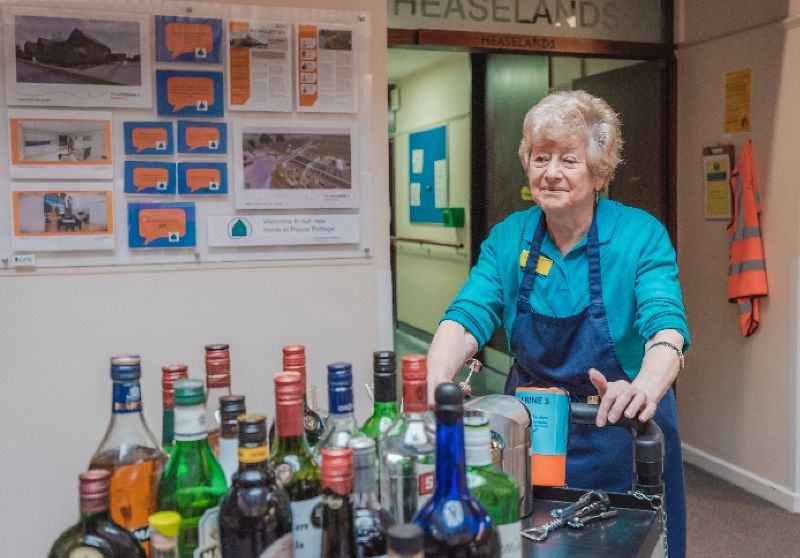Top 10 things to consider when writing a will
It’s probably one of those things you’ve either been meaning to get around to, or you’ve been meaning to change. But, writing a will is quite often far from our list of priorities. As the stresses and strains of a busy life take over, it’s no wonder we put our plans for later life on hold. However, it is really important that you write your will – it doesn’t take long and, despite what people think, it is not complicated either! You can choose who benefits from your estate rather than it passing under the intestacy rules i.e. to a relative you would not want to benefit.
As part of our Make a Will Fortnight, which runs from 13 – 24 May 2019, Diane Sumpter, Senior Associate and Chartered Legal Executive at Downs Solicitors LLP, has shared her top ten tips of things to consider when writing a will:
1 – Your children
In my experience, people will often write their first will after having a child. This is absolutely important, as it ensures the security of your wishes if you or your partner were no longer around. For young children, you can nominate a guardian to care for your children until they are adults. You might want to consider a guardian who is similar to yourself and your partner in terms of personality and lifestyle. You should also think about who can practically take on a child – are they planning on having children themselves? Are they physically, and financially, fit to do so? As well as guardianship, your will can also include any wishes you may have for your children, such as where they live or the education they receive.
2 – Family dynamics
If your children are adults, and you wish to include them in your will, it is worth giving some thought to the relationship between your children and their siblings. If they do not get on, you can appoint an impartial executor as part of your will. You can also appoint trustees who can manage the inheritance of children who are minors.
You should also consider the protection of any children, or even step children, in the event of a spouse re-marrying. If they then have their own children, there is a chance that their share of the estate can be diluted, or even held in trust until after the newly-married partner has passed away.
3 – Beneficiaries
Any people, charities or organisations that benefit from your will are called “beneficiaries”. They may receive specific gifts from your estate on your death, but it is crucial you are able to provide their names and contact details. It is a common myth that spouses will automatically inherit your estate, but this may not be the case if they are not named beneficiaries in your will.
4 – Dividing your estate
Naming any beneficiaries in your will goes hand in hand with dividing your estate. Most parents wish to be fair to their children – but that doesn’t always mean equal shares. For example, a child with a disability may benefit from a larger inheritance. Equally, a sibling in financial hardship could be given a larger share than a sibling who is wealthy. Whatever you choose to do, it can be helpful to prepare a note for your children, explaining your decisions. It can be better still, to talk to them and keep the communication channels open. This may help mitigate any costly legal battles after your death.
Charities can also be included in your list of beneficiaries. In fact, leaving a gift in your will could provide a vital lifeline to charities – plus you might just find you can mitigate some of the associated Inheritance Tax (IHT) costs.
You can find out more about remembering St Catherine’s Hospice in your will here.
5 – Inheritance planning
Whilst considering how you are going to divide your estate, you need to give some thought to inheritance planning. If you do decide to give to charity in your will, it won’t count towards the total taxable value of your estate. This is called leaving a “charitable legacy” and in some situations it can reduce the IHT rate on the rest of your estate from 40% to 36% if you leave at least 10% of your estate to charity.
There may be other ways you can help lower the tax bill. Could your child benefit from gifts during your lifetime? Are you planning to hand over the family business? If so, there will be legal and tax efficient ways to do this. Speak to your lawyer when writing your will as they will be able to recommend the process that is right for you and your family.
6 – What’s it worth?
Whilst you are thinking about inheritance planning, and dividing your estate, you should also consider exactly what any assets are worth. Do you have any savings? What about any valuables or heirlooms? What about your home or other property? These may be easy enough to value, but if you are planning to hand over your business, or your pension to your surviving spouse, that’s where it can get a bit trickier. In deciding the valuations, you should consult with a professional who will be able to help you.
7 – Claims against you
You’ve thought about your family and the welfare of your children. Could there be others who are waiting to make a claim against your estate?
8 – Executors
These are people who carry out your wishes in accordance with your will. Most people tend to name more than one executor and these are usually relatives, friends or a solicitor. Whoever you choose, you need to make sure you give it some consideration. Choose someone you are confident will be able to handle things fairly, and properly, right to the end.
9 – Keep it simple
A lot of people are put off because they think wills are complicated things. However, the basics are quite simple. A solicitor will be able to help you focus on keeping things simple and readable – after all, they must be easily understood by your family members. If you have a good idea of what you want to cover and any wishes for children or spouses, then that is easily the basics covered. Of course, the simplest thing – remember to sign it and tell someone where it is!
10 – Don’t forget your LPA!
If you don’t have one of these already, then it is essential to get one at the same time you write your will. A Lasting Power of Attorney (LPA) should be part of everyone’s plan – particularly for later life. It is a legal document that will ensure a trusted person (an attorney) can take care of your interests if you are unable to do so yourself. Without an LPA, your family could face a long and lengthy legal battle to gain permissions on your behalf.
LPAs can cover any wishes relating to your healthcare in later life. This is called a Health and Welfare LPA and it allows your attorneys to make important decisions about your medical treatment, or where you live, when you can’t make those decisions. A property and finance LPA allows your attorney to act on your behalf regarding finances. They can organise the payment of any rent or bill, or manage your bank account.
A very common misconception is that married or cohabiting couples do not need an LPA – this is simply not the case! It is important you have an LPA which names each attorney so that you can protect one another.
Once you have made your will:
- Keep it regularly updated and review it every 3-5 years.
- Update it when a major change affects your life circumstances, such as having a child or a bereavement
- Get it drawn up by a professional lawyer.
- Talk to your family about your choices
Every family circumstance is different, so it is always recommended to secure advice from a lawyer when drafting your will.
Diane Sumpter, Senior Associate and Chartered Legal Executive, Private Client Department.
A: Downs Solicitors LLP, 156 High Street, Dorking, Surrey, RH4 1BQ
T: 01306 502235
E: d.sumpter@downslaw.co.uk












